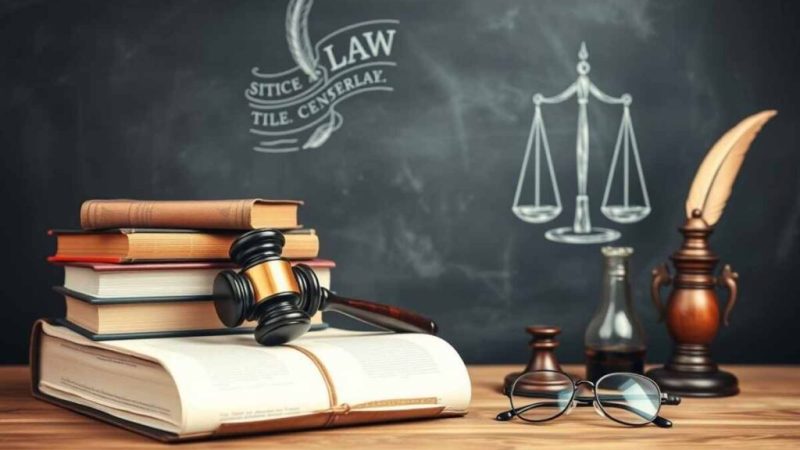Law is a complex and evolving framework that shapes the social, political, and economic fabric of societies worldwide. Its influence spans from individual rights to corporate governance, ensuring order, fairness, and justice. By examining its foundations, functions, and applications, one can appreciate how law operates not only as a system of rules but also as a mechanism for societal progress. In this article, we will explore the nature of law, its classifications, fundamental principles, and its role in modern society.
What is Law?
Law is a set of rules established and enforced by governmental institutions to regulate behavior, resolve disputes, and maintain social order. Unlike informal social norms, laws carry formal authority and are backed by legal sanctions, including fines, imprisonment, or other remedies.
Key characteristics of law include:
- Authority: Laws are enacted and enforced by recognized legal institutions, ensuring legitimacy.
- Universality: Within a jurisdiction, laws apply equally to all individuals, irrespective of status or position.
- Enforceability: Legal frameworks are backed by mechanisms such as courts, police, and regulatory bodies to ensure compliance.
- Adaptability: Laws evolve over time, responding to technological advancements, cultural shifts, and social needs.
Law can also be understood as a reflection of societal values, capturing the moral and ethical standards that a community deems important.
Classifications of Law
Understanding law requires examining its different types and domains. Laws can be classified into several categories based on their purpose, scope, and jurisdiction.
Civil Law
Civil law governs disputes between individuals, organizations, or institutions where one party claims to have suffered loss or injury due to another’s action or negligence. It covers:
- Contracts: Legal agreements and obligations between parties.
- Property: Ownership rights, transfer of property, and disputes.
- Family law: Marriage, divorce, child custody, and inheritance issues.
- Torts: Civil wrongs, such as negligence or defamation, leading to compensation claims.
Civil law systems, predominant in many European countries, emphasize codified statutes and written legal principles.
Criminal Law
Criminal law addresses behaviors that are considered harmful to society as a whole. It defines offenses and prescribes punishments. Key components include:
- Felonies: Serious crimes such as murder, robbery, or assault.
- Misdemeanors: Lesser offenses, often punishable by fines or short-term imprisonment.
- Procedures: Processes for investigation, prosecution, trial, and sentencing.
The objective of criminal law is deterrence, rehabilitation, and protection of society.
Constitutional Law
Constitutional law defines the structure of government, the powers of its branches, and the rights of citizens. It provides the fundamental legal framework and ensures that laws align with constitutional principles. Key aspects include:
- Separation of powers: Division of governmental authority among executive, legislative, and judicial branches.
- Civil liberties: Rights such as freedom of speech, religion, and assembly.
- Judicial review: Courts’ ability to assess the constitutionality of laws and government actions.
Administrative Law
Administrative law governs the actions and procedures of governmental agencies. It ensures accountability, fairness, and transparency in public administration. Common areas include:
- Licensing and permits
- Regulatory enforcement
- Social services administration
- Public sector employment disputes
International Law
International law regulates relations between nations and international entities. It encompasses treaties, conventions, and customary practices. Key fields include:
- Human rights law: Protection of fundamental human rights globally.
- Trade law: Agreements governing cross-border trade and commerce.
- Environmental law: International treaties addressing climate change and natural resource conservation.
- Conflict law: Rules governing war, peace treaties, and international disputes.
Fundamental Principles of Law
To maintain legitimacy and effectiveness, law operates on several fundamental principles.
Rule of Law
The rule of law ensures that every individual, including those in positions of power, is subject to the law. It prevents arbitrary governance and safeguards equality.
Justice and Fairness
Law seeks to provide justice through impartial processes and fair resolutions. Justice is achieved when legal outcomes align with societal standards of morality and equity.
Legal Certainty
Laws must be clear, publicized, and predictable, allowing individuals to understand their rights and obligations. This principle minimizes ambiguity and enhances trust in the legal system.
Accountability
Law holds individuals and institutions accountable for their actions. Government officials, corporations, and citizens are all responsible for compliance with legal norms.
Protection of Rights
A core objective of law is to safeguard individual and collective rights. This includes civil, political, economic, and social rights that ensure dignity, safety, and opportunity.
Sources of Law
Law derives from multiple sources that establish its authority and applicability.
- Statutory Law: Written laws enacted by legislative bodies such as Congress or Parliament.
- Judicial Precedent: Decisions made by courts that establish legal interpretations, forming the basis of common law systems.
- Customary Law: Practices and traditions recognized as legally binding within communities or societies.
- Administrative Regulations: Rules issued by government agencies to implement statutory mandates.
The Role of Law in Modern Society
Law serves as the backbone of orderly societies and functions across various domains.
Maintaining Social Order
By defining permissible behavior and consequences for violations, law ensures societal stability. It mediates conflicts and deters disruptive conduct.
Facilitating Economic Development
Legal frameworks support commerce, trade, and investment by enforcing contracts, protecting intellectual property, and regulating markets. Stable legal systems attract investment and foster innovation.
Promoting Human Rights
Law provides mechanisms for protecting human rights and addressing injustices. Courts, tribunals, and regulatory bodies uphold civil liberties, equality, and non-discrimination.
Environmental Protection
Environmental law governs resource use, pollution control, and sustainability initiatives. It ensures that economic progress does not compromise ecological balance.
Advancing Technology and Innovation
Intellectual property law, cybersecurity regulations, and digital governance enable technological growth while safeguarding creators and consumers.
Challenges in the Legal System
Despite its central role, law faces significant challenges:
- Backlogs and delays: Court systems often struggle with prolonged case resolutions.
- Access to justice: Socioeconomic disparities can limit individuals’ ability to engage with legal processes.
- Corruption and bias: Influence of power and money can undermine fairness.
- Globalization: Cross-border issues complicate enforcement and jurisdiction.
Addressing these challenges requires legal reform, technological integration, and enhanced transparency.
Careers in Law
A career in law offers diverse paths, each requiring specialized knowledge and ethical commitment.
- Legal Practitioners: Lawyers, barristers, and solicitors representing clients in civil or criminal cases.
- Judiciary: Judges and magistrates who adjudicate disputes and interpret laws.
- Legal Academia: Scholars who research, teach, and develop legal theories.
- Corporate Counsel: In-house legal advisors guiding business compliance and contracts.
- Policy and Governance: Professionals working on legislative drafting, regulation, and public administration.
Technology and Law
The legal landscape is increasingly influenced by technology, creating opportunities and challenges:
- Artificial Intelligence: AI-powered tools assist in legal research, document review, and predictive analytics.
- Digital Evidence: Cybercrime and digital transactions require specialized legal frameworks.
- Online Dispute Resolution: Virtual platforms enable quicker, cost-effective resolution of disputes.
- Blockchain and Smart Contracts: Immutable digital agreements transform contract enforcement and verification.
FAQs About Law
Q1: What is the main purpose of law in society?
Law ensures order, justice, and protection of rights. It provides a framework for resolving disputes and regulating behavior to maintain stability.
Q2: How does constitutional law differ from statutory law?
Constitutional law sets fundamental principles and structures of government, while statutory law consists of specific rules enacted by legislative bodies under constitutional authority.
Q3: Can international law be enforced?
Yes, enforcement often occurs through treaties, international courts, arbitration, and sanctions, though challenges exist due to sovereignty and jurisdictional limitations.
Q4: What are the essential qualities of a good legal system?
A good legal system is just, transparent, accessible, predictable, accountable, and adaptable to societal changes.
Q5: How does law protect human rights?
Legal frameworks guarantee fundamental freedoms, provide remedies for violations, and establish mechanisms to prevent discrimination and oppression.
Q6: What role does technology play in modern law?
Technology facilitates legal research, digital evidence handling, online dispute resolution, and the creation of innovative contracts while posing new regulatory challenges.









